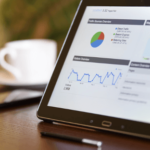Let’s face it: today’s market is more crowded and competitive than ever before. The advent of e-commerce, for example, has expanded possibilities for consumers. And that means businesses no longer only compete with local retailers and the Big Box store on the corner for their fair market share.
Rather, businesses today contend with rivals both down the street and on the other side of the globe. That makes marketing even more crucial to a company’s long-term survival. However, much like the marketplace itself, the field of marketing has undergone radical transformations in recent decades. This is due not only to the ascendency of the digital domain but also to the astronomical increase in consumer and market data now available to marketers.
Indeed, data-driven marketing is essential to developing campaigns and strategies that truly generate results. But it doesn’t just happen. To leverage the awesome potential of data-driven marketing, you must be proactive and strategic.
This article describes some of the best practices in data-driven marketing and examines ways you can put these practices to work.
What Is Data-Driven Marketing?
Data-driven marketing, as the name implies, is a strategy that involves the deployment of relevant, comprehensive, and continuously updated metrics in the development of a marketing strategy. These data come in myriad forms. This includes the internal data generated by the company itself, as well as external data derived from an analysis of the market, the target customer, and competitors.
The data is collected, curated, and analyzed to enable marketing teams to increase the effectiveness of an existing marketing platform. From there, they can devise entirely new campaigns. Data-driven marketing enhances marketers’ ability to target key market segments, such as Millennials, women, seniors, or other segments for which a product or service is designed.
To be sure, marketers have always used data to develop a company’s marketing platform or to create targeted promotions. What makes data-driven marketing different from traditional approaches, though, is the centrality of the data in shaping marketing processes.
The increasing importance of data derives from the fact that today’s technology enables markets to receive more accurate, substantive, and timely data than ever before. That means a marketer’s decision-making processes can be based on the most comprehensive and up-to-date information possible. And that, in turn, gives marketers greater confidence in devising evidence-based marketing platforms.
Protecting Data Privacy
As important as data is to defining effective and timely marketing campaigns, it’s critical not to take lightly the process of data collection and utilization. Consumers are wary of granting access to their private information unless they can be assured both that their data will be protected and that it will not be misused or exploited.
For this reason, one of the most important best practices is to be proactive in protecting and ethically using consumer data.
This includes being highly judicious in your choice of customer data platforms (CDP). It also means ensuring your technologies provide the utmost security for your customers’ private data. For instance, select a CDP platform that offers robust governance capacities to ensure only those with the appropriate permissions will be able to access the data.
Personalized Marketing
Today’s consumers want more than a one-size-fits-all interaction with the companies they support. They want to feel known, understood, and valued as individuals.
Therefore, if you want to make the most of your data-driven marketing strategies, prioritize personalized messaging. Marketing data can be used to create personalized messages that range from targeted email campaigns to social media promotions tailored to your customer’s unique interests.
Apply the Data to Your Marketing Strategies
Effective data-driven marketing isn’t just about collecting information on customers, competitors, and the market to devise timely-targeted campaigns. To capitalize on the true power of data-driven marketing, turn the lens back onto your own marketing processes.
More specifically, it’s vital to collect data on the performance of your marketing platforms. This means the efficacy of specific campaigns and promotions. Data may also be collected on various segments of your marketing platforms, such as evaluating the effectiveness of your social media marketing efforts. These digital marketing metrics might include anything from click rates on various social media ads to bounce rates on your company’s web pages.
These data points provide crucial insights into what is working well across your various marketing, media, channels, and promotions underway. The data can also help pinpoint and rectify weaknesses in your strategy early on. Doing so ensures underperforming aspects of your systems don’t cause real damage to your bottom line.
The Takeaway
Data-driven marketing can be the key to succeeding in today’s highly competitive and increasingly crowded market environment. However, using this approach effectively requires strategy. Best practices for data-driven marketing include ensuring the utmost ethical standards regarding data protection and use. In addition, the approach should prioritize personalized messaging and targeted marketing. Finally, it should involve turning the analytical lens on the company’s own marketing platforms, and collecting data on all aspects of the company’s marketing strategy to optimize performance.





